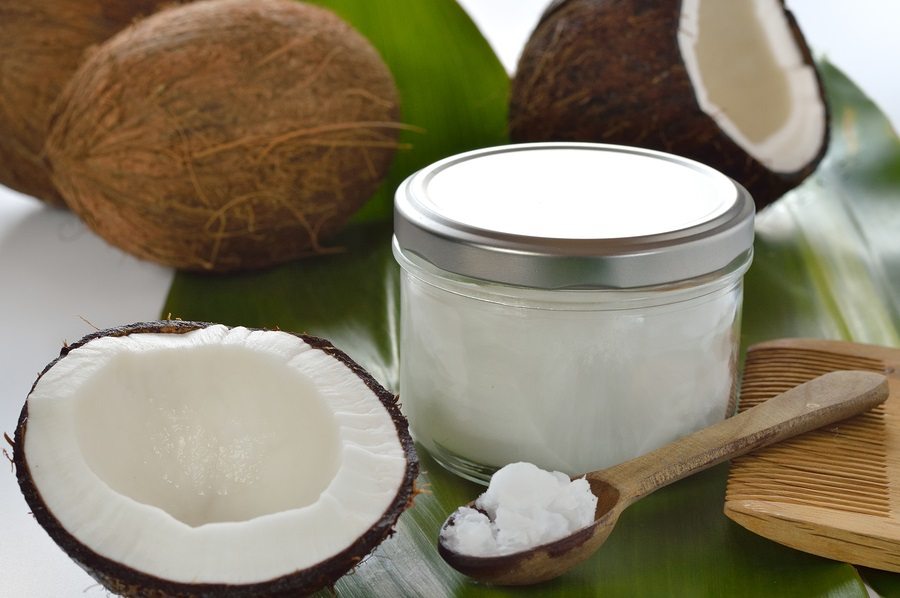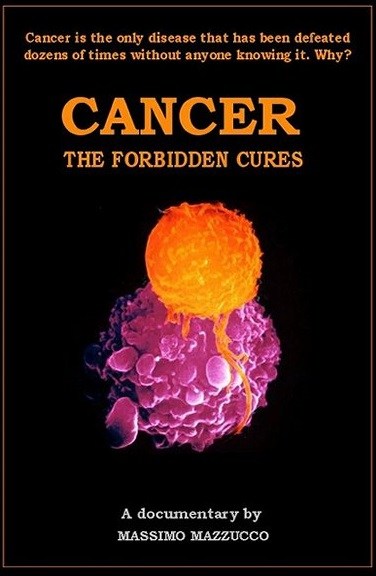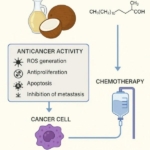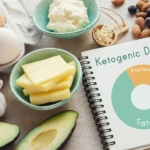
Health Impact News Editor Comments
Some of the most exciting research to come out in the past few years regarding the high-fat low-carb ketogenic diet has been in the area of cancer treatment. The results are so promising that new “ketone” drugs are in the pipeline.
The ketogenic diet is a high-fat, low-carb, and moderate-protein diet that was first developed in the 1920s at John Hopkins hospital to treat epilepsy. Some children with seizures saw great success on the diet, often where drugs had failed.
Today, the ketogenic diet principles, particularly using coconut oil as the main fat, are being used to treat neurological diseases such as Alzhemier’s, as well as successfully treating cancer.
The primary motivation to develop drugs that mimic the effects of the diet is because it is considered “difficult” to follow the diet. We have a whole generation now that is addicted to processed sugar and carbs, so if one can take a pill instead, that is seen as preferable. (See: Ketone Body Therapy: From ketogenic diet to oral administration of ketone ester.)
Sadly, the principles of the ketogenic diet were once common knowledge, as this clip from the popular 1960s Andy Griffith show portrays. Aunt Bee’s apple pie is seen as something to limit or even skip because of the dangerous “carbohydrates and glucose”, while meatloaf was seen as healthier.
Woman battles deadly brain cancer using low carb ketogenic diet without chemo
by Samantha Chang
Examiner.com
Excerpts:
Alix Hayden has brain cancer, but instead of undergoing surgery and grueling chemotherapy, she’s fighting it with the low-carb, high-fat ketogenic diet and has been doing great so far.
In an exclusive interview March 14, Hayden discussed her metabolic diet therapy and navigating cancer with a positive attitude. Alix, director of operations at biochemistry research firm Phenomenome Discoveries in Saskatoon, Canada, was diagnosed with brain cancer in August 2012. She has been following the ketogenic diet (which is a very low-carb, high-fat, moderate-protein diet) since February 2013, which cancer researcher Dr. Dominic D’Agostino confirmed starves cancer cells. This is because all the cells in our body can use both fat and glucose (a carb), but cancer cells thrive on glucose and cannot survive on ketones. So by limiting carbohydrates — which turns into glucose inside the body — we can starve cancer cells.
Hayden’s diet is roughly 65% fats, 30% protein, and 5% carbs. Her brain tumor hasn’t gotten smaller since she began the ketogenic diet, but it also hasn’t gotten any bigger — which is a great sign.
Alix, who’s in her thirties, gets an MRI every six months and is holding off on chemotherapy and radiation, as her brain tumor was categorized as slow-growing. Hayden started a blog called Greymadder to chronicle her cancer recovery, which has made her something of an Internet celebrity.
Question: Do your doctors have an opinion on your diet therapy?
No. I’ve told all of my doctors, my oncologist, my neurosurgeon, my neurologist, about my diet. I did not ask for their help in adopting it, I just began slowly and felt I had enough good information to take it on myself. I was also not undergoing any other treatment at the time.
I’m on a ‘watchful waiting’ program designed to monitor the tumor for progression, so I was in a position where I didn’t have to be concerned about effects on treatment. One of my doctors, when I told him a few months in, said, ‘We could all stand to cut out sugar.’ That was really the extent of the conversation I’ve had with my doctors about it.”
Question: What’s a typical daily menu for you?
Typically, I start my day with a good-sized breakfast, always with a coffee or iced coffee supplemented with MCT or coconut oil and heavy cream. Along with that, I’ll have about four slices of bacon and half an avocado, or full-fat Greek yogurt.
Read the Full Article Here.
More on the Ketogenic Diet.
Purchase the DVD – Free Shipping Available! Click image to view the trailer.




 HHS Secretary Kennedy Breaks His Promise: "War on Saturated Fat" Kept in Tact with New U.S. Dietary Guidelines
HHS Secretary Kennedy Breaks His Promise: "War on Saturated Fat" Kept in Tact with New U.S. Dietary Guidelines Research Continues to Show Virgin Coconut Oil's Effectiveness in Treating Cancer
Research Continues to Show Virgin Coconut Oil's Effectiveness in Treating Cancer Coconut Oil Continues to Benefit Alzheimer's Patients over Drugs as Studies Continue for Neurological Benefits
Coconut Oil Continues to Benefit Alzheimer's Patients over Drugs as Studies Continue for Neurological Benefits How the Simple High-Fat Low-Carb Ketogenic Diet Continues to Change People's Lives
How the Simple High-Fat Low-Carb Ketogenic Diet Continues to Change People's Lives New Studies Continue to Show that Coconut Oil is the Best Oil for Treating Skin Conditions and Maintaining Healthy Skin and Teeth
New Studies Continue to Show that Coconut Oil is the Best Oil for Treating Skin Conditions and Maintaining Healthy Skin and Teeth